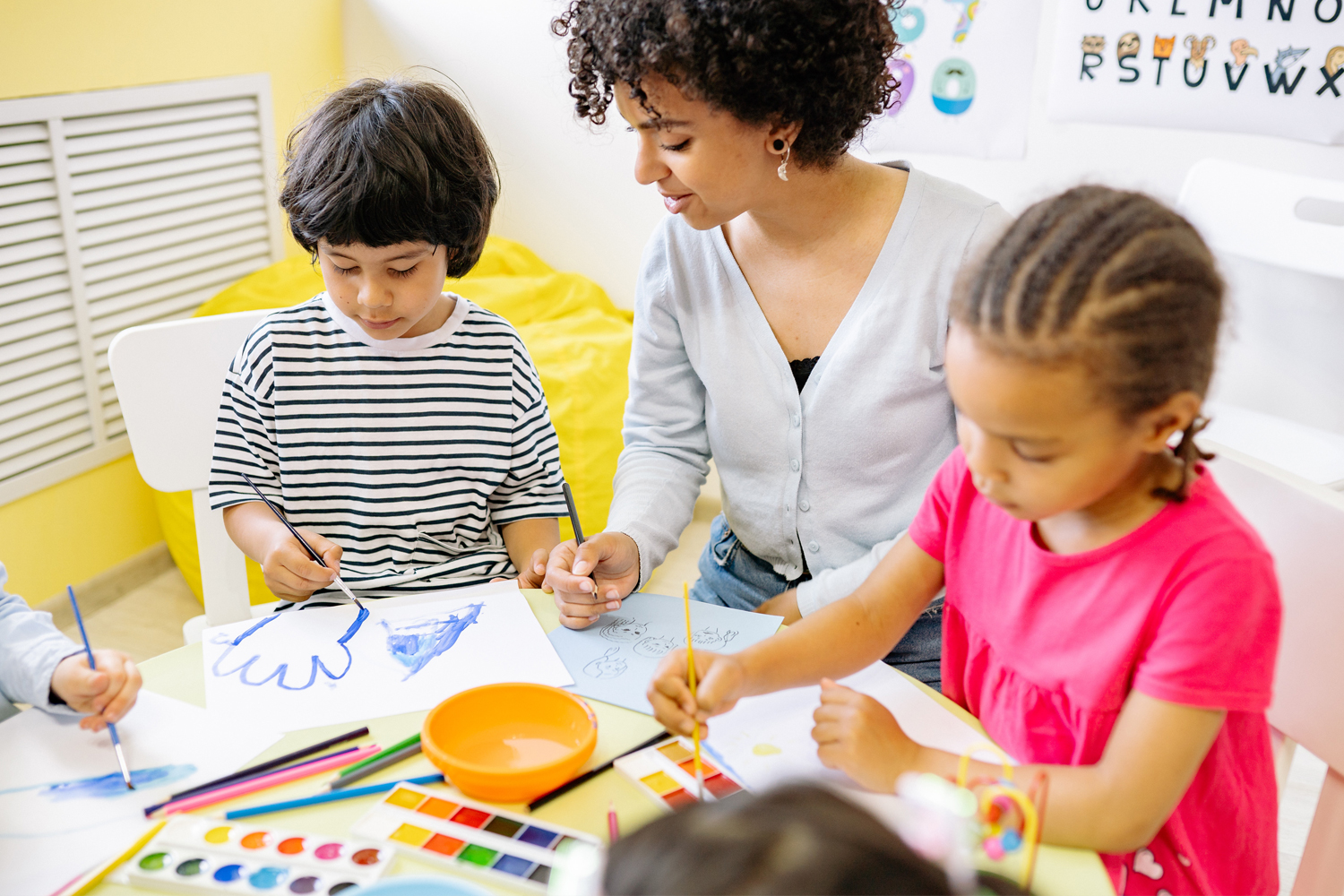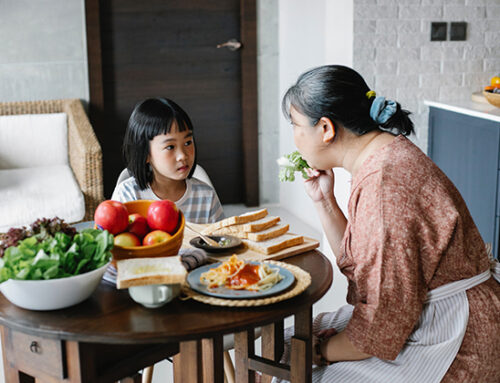Children with delays or disorders in expressive and receptive language have difficulty understanding, developing, formulating, and communicating their thoughts, ideas, wants, and needs. This can significantly impact their ability to successfully communicate with others, resulting in communication breakdowns, frustrations, and difficulty developing meaningful relationships and interactions. Luckily, with the support and coaching of your child’s speech-language pathologist and therapeutic team, there are several things that you as parents can do at home to facilitate and promote increased language skills. This blog is all about how you can promote your child’s language skills using your senses.
As children develop, they become explorers of their natural world, experiencing new sights, sounds, smells, and sensations. It’s important to recognize that while children with language and sensory difficulties experience these stimuli in a unique way, the novelty and uncertainty of these experiences provide a wonderful opportunity for you, as a parent and communication partner, to facilitate and promote language use, growth, and development. Thinking about the five senses that each individual has, including sight (vision), hearing (audition), taste (gustation), smell (olfaction), and touch (tactile), you can frame your communication with your children to relate to these senses and promote expanded, meaningful, and novel language use.

Imagine taking your child to the park. It is full of auditory and visual stimuli that may be novel, and perhaps overwhelming if your child has difficulty communicating about what they experience. Narrating your own senses about what you see, what you hear, and what the child is seeing and hearing, you can help promote language development and meaningful interaction. Simple, yet impactful statements pertaining to your senses (e.g., “I see the swings.” “I hear the train.” “I smell the flowers.”) can help encourage language learning and promote the initiation of expressive language in a meaningful way. While at home, opening up the dialogue during meal and snack times is a fantastic way to incorporate language learning and exploration of the five senses. Describing the way a food tastes, the way it smells, the way it feels on your tongue, the sounds it makes when you bite, and the way it looks, sets up your communication environment to not only increase receptive learning but allows for the child to participate in a reciprocal communicative exchange.
Promoting functional language use and setting up exciting and novel opportunities for your child to deepen their receptive and expressive language skills during meaningful activities is a wonderful way to help your child improve their communication skills. Utilizing the five senses to not only narrate, but open the window for reciprocal interaction with your child, is a helpful and functional way to support your child’s language growth. By implementing this strategy across your child’s interests and play activities, you are opening up more opportunities for your child to understand, access, develop, and utilize their language for a rich and robust experience.

Blue Bird Day fosters socialization, sensory regulation, and pre-academic learning in children ages 2-7 years in therapeutic rotations that simulate preschool and kindergarten settings. Our compassionate therapists practice a relationship-based and family-centered approach, provide parent training, and collaborate on goals and individualized intensive treatment plans for your child.
We believe in a collaborative and multi-disciplinary team approach to therapy. A team of occupational therapists, speech-language pathologists, dietitians, developmental therapists, behavioral therapists, physical therapists, and therapeutic assistants are created for each child to ensure child and family are fully supported and the best possible results are achieved.
Options for individualized, group and virtual therapy sessions are available as well.
Want to learn more or you have a specific question? Feel free to connect with us here!



